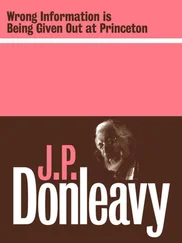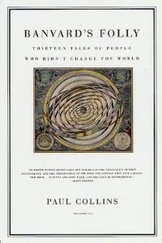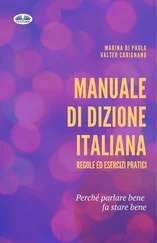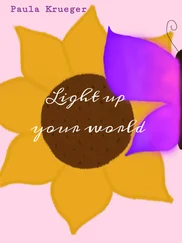“I’ve never been to New Something. Always wanted to go.”
“I’ll send you a postcard. When I hit the big time.” Grace grins again. “Would that be okay?”
“Sure,” I say. “I’d like that.”
Nearly a whole day has gone by, and my stop is less than an hour away. Grace finds a timetable, stuffed deep in the seat pocket, to write on, and I give her the address, the one I’ve sent some letters to, when I found the time.
“You going to be there for a while?”
“No idea, really,” I say.
“Does your brother still live around here?”
“No.” I swallow. “He left a long time ago.”
“Where is he now?”
“Dead,” I say, for the first time ever, knowing full well I have not answered “Where?” but also knowing that once you said “dead,” where doesn’t really matter all that much anymore. I wait for the ache, for the tears I have never once cried sober or stoned, but they do not appear, again. Maybe someday I’ll send out a posse. Put out an APB.
Grace asks, so I tell her they never found his body. There was nothing to bury, nothing to put my hands on, kiss good-bye, say, “This was my brother. This was my best friend.”
Grace holds up the box and looks at me, eyes shining more than usual. “You knew, didn’t you?” she says. “You looked.”
I bite my lip, nod. Busted.
“These are my grandma’s ashes,” Grace says. “They can’t help you. I can’t give them to you.”
“I know.” I thank her, silently, for something I’m sure neither of us could put a name to. We are in cow country now. Probably not much prayer of that horse anymore either.
Grace gets her banjo back down and starts to play, messing around for a minute, trying to find the right key, or whatever it is that banjo players do. I have no idea how it works; I just know the song when I hear it, like I heard it so many times from behind his bedroom door, or from inside his room—“Rave On”—when he’d let that little girl in, grab her, and twirl her like a little top, like a little gyroscope set to spin across the floor, careening into shoes, bed legs, the bookcase, and back into the middle of the room, until it finally fell over, like someone had shot it.
Her. Like someone had shot her.
The letter my father sent did not say Mom had taken to wandering off, or that her head sometimes trembled uncontrollably in a regal, Katharine Hepburn On Golden Pond sort of way.
“I can’t go after her,” he says, shrugging, slinging a hitchhiker’s thumb over his shoulder at the small oxygen tank that trails him everywhere now, strapped to its little wheeled cart: tentacled, shiny, ferociously present. “I thought if I told you, it would make it hard for you to come back.” I think he must mean hard er , but I do not say so. He tries to meet my eyes with his own matching turtle-green ones. Tries. Nearly succeeds. “I thought it would scare you. I thought you might not come.” I might not have — might have gone ahead and jumped off that train and onto that pony, somewhere on the forested side of Glacier Park. Or not gotten on the train at all. Probably? Most certainly probably. Most probably certainly.
Sometimes she’ll bum a ride back with the neighbors. People we don’t know, who have bought up small parcels of subdivided land (some of it once ours), out here on the still mostly empty prairie. Still mostly still. In the scope of things, at one time a half section—320 acres — did not seem a lot, certainly not enough to share with strangers, in a place where the cattle ranches run to a thousand square miles or more. But a world gets smaller, doesn’t it? All of a sudden my father has a range of about a thousand square yards . It’s like someone came when he wasn’t looking and installed one of those underground electric fences, the kind that shocks when a dog (presumably a dog) gets too close. But this is my most-human dad, forced into retreat by invisible barriers, driven inside or to the porch, where it doesn’t cost him so much just to breathe.
We play Scrabble; sometimes the three of us, sometimes just us two. Mom goes in and out: lucid some days but often drifty, flirting intermittently with pure loopy, or gone. She always leaves on foot, can’t get too far walking, and seems generally to be a happier version of herself when she gets back, so Dad and I leave it to the neighbors to decide how they feel about it. They don’t tell us. Typically.
I am amazed at how easily those two words — Mom and Dad — have again become a part of my vocabulary. For so many years now, they have been Rose and Henry to me, as if removing the familial tags would make it all right to stay away. On the loose, out on my own recognizance — that has been my MO. I had my reasons. Who knows if they were good ones? Who the hell even knows what they were? Other than us, there are only two, maybe three other people on the planet who could possibly care.
Mom adds her letters to an existing word, making “funhouse” for thirty-four points. She’s kicking our asses. She’s always been good at this game.
“Nice one, Rosie,” Dad says. Her expression softens as she looks up at him. I wonder when he started calling her Rosie, and not just plain Rose. I wonder if it was when she started going away. Or maybe he always called her that when me and Mick weren’t around. Maybe it was part of a dialect they spoke only with each other. I feel an intense and alien longing, somewhere in the vicinity of my stutter-stepping heart, and it takes me completely by surprise. I know I once had, at least with that long-haired boy out at Cherry Gulch, the slightest taste of a similar, if less evolved, kind of love. I have been invited in but had no idea what to do about it, save for leave it in the rearview as quickly as possible. Do I regret that? Something fierce I do.
I watch them when I think they won’t notice. Signs of age — the usual — overlay faces that were once a full half of my entire solar system, two of the three planets that would always be visible in the night sky. Then, of course, I thought it would be that way forever, and even if the third planet’s orbit sometimes kept him out of sight a bit too long for my liking, he would still keep coming around. That’s what planets are supposed to do. They are not supposed to jump the track, fly off into an alternate universe, leave a gaping black hole in space. We don’t talk about my flight path. Not here we don’t. Except to say I think I was not meant to be that fourth planet necessarily. I think I was meant to be a moon, or a satellite. Gravity was meant to be my friend. I don’t know how any of this happened.
Dad’s thick, dark hair is only now beginning to turn gray. Absently, he runs his fingers through it, clutches it in his bony fist, as if making certain he is really still here. The backs of his hands, and his forearms, are darkly bruised. Sarcomas. A constellation of blazing black stars. I ask if they are painful.
“Only to look at,” he says, tugging the sleeves of his flannel shirt down as far as they will go. He smiles. I see exactly now what they mean when they say “ruefully.”
I have the letters to spell most of it, hunt down an opening and spell “rufely.” To make my mother laugh. She cuts her eyes at me, sly.
“What did you study out there, Riley?”
“Boys,” I say. I don’t mention the other things I studied, or my frequent sightings of nothingness. Though I know the evidence is visible, and not only to me.
She turns her head, tilts her chin down, and looks into my eyes. “Books?” she says, and I nod. She knows. There is no point in pretending, about train wrecks, holding patterns, or reconstruction. My mother is no dummy, even when the synapses misfire, and throw sparks.
Читать дальше












